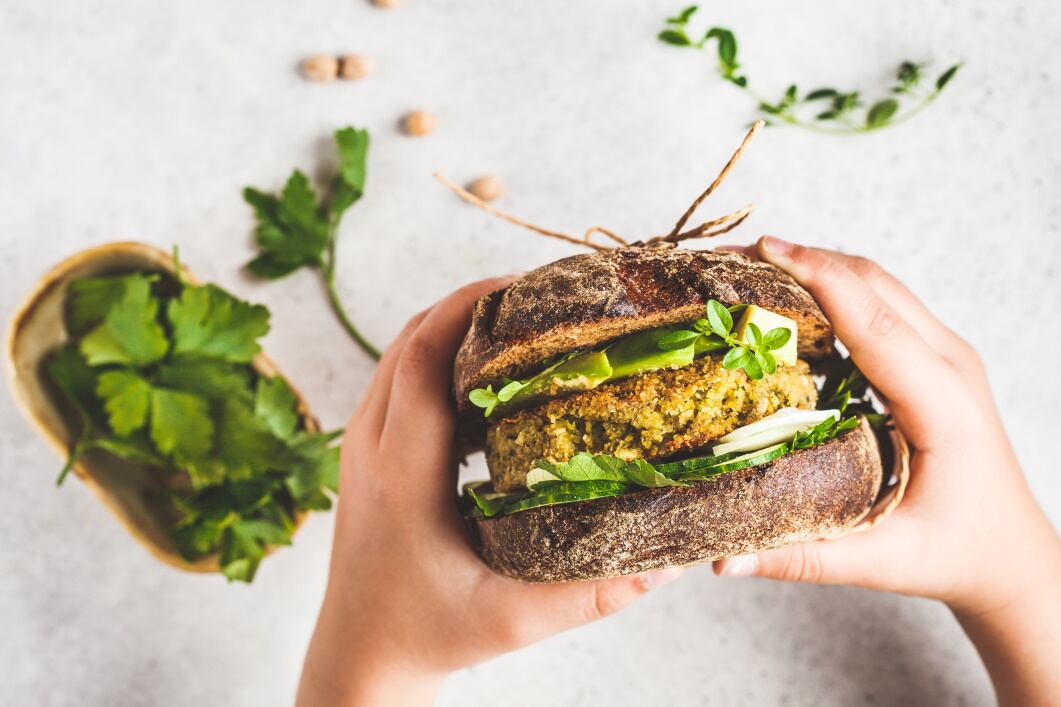IOFI is an international trade association representing some of the world’s largest flavour houses and hundreds of small and medium enterprises affiliated to the IOFI member associations. Its core mission is to promote the global trade of safe, compliant and responsibly produced flavours ingredients.
Louie D’Amico, who heads up Taste & Wellbeing at Givaudan, was recently named the organisation’s President. During his tenure, his focus will be on the implementation of the IOFI strategic roadmap. His priorities are three-fold, D’Amico told us.
“First, in terms of governance and membership, IOFI will continue to extend its internal and external networks globally,” he said, pointing to the recent addition of Thai Flavor Trade Association as a Corresponding Member. “Through this new affiliation, IOFI looks forward to further conducting constructive dialogue with the authorities in Thailand. The main objective is to continue this internal outreach, particularly in Asia.”
Collaboration and outreach along the value chain are also important themes for D’Amico, who believes there are areas – from regulatory to scientific fields – that ‘cannot be managed in isolation’. “These require robust alignment with our economic partners. Therefore, another significant priority of my tenure will be to reinforce cooperation along the value chain with up- and downstream partners.”

Finally, D’Amico continued, IOFI will address ‘flavouring market dynamics and challenges’. “As a trade association representing the interests of the whole industry, we will make sure that our value proposition is strong and sufficient to adapt to these new developments. The objective is to accompany the sector throughout these changes and to work towards a consistent and adequate framework ensuring full compliance of our members’ portfolios – today and in the future.”
Trends shaping future of flavours
So, what challenges and opportunities does D’Amico see in the flavour sector’s future?
“The world has come through a very difficult and uncertain year, which has required resilience and flexibility from everyone. In this challenging context, our industry, as an essential part of the food value chain, did everything possible to both protect its workers and to ensure a continued supply of its products. We have also made a massive effort to ensure a dynamic and appropriate response to the fast-moving consumer trends observed on the markets: namely, to offer natural, healthier and more nutritious products, which are also at the same time highly sustainable,” he observed.
The importance of transparency – as well as the link between diet and health – have come to the fore. “Many consumers around the world are increasingly conscious about their diets. They want to know more about what they eat and how it has been produced.”
As an industry, the flavours expert says the sector has not only noted but ‘embraced’ this trend. But, he noted, this can be something of a balancing act. “We are committed to transparently addressing the questions raised by consumers while protecting our intellectual property. The challenging aspect is to find the right balance between the consumers’ right to know and our business interests.”
Lastly, D’Amico sees ‘important challenges’ in the regulatory landscape, including a ‘more fragmented patchwork of different regulatory frameworks’. “This is particularly true for the broader Asia-Pacific region. As you know, one of the main strategic objectives of IOFI has always been to facilitate a harmonized approach to flavouring regulations that supports a global industry, and therefore, this situation requires constant adaptation from our end.”
Outreach on market access, regulation and safety
Market access issues are ‘intrinsically linked’ to ‘reasonable, scientifically justifiable harmonization of safety evaluation approaches’, D’Amico said.
To support this, IOFI operates a global outreach through the IOFI Global Reference List (GRL), which is a compendium of flavouring materials that are considered ‘safe for their intended use’ by one or more internationally recognised assessment bodies.
“Local food safety authorities, especially in Asia, are establishing positive lists for food ingredients – including flavourings – that in certain cases have the potential to disrupt well-established supply chains. IOFI, through its national member associations and member companies and in concert with value chain partners, is trying to address questions from regulators and provide all the necessary safety related data to ensure a continued acceptance of flavourings in this highly dynamic market,” he revealed.

Self-regulation also plays a role and IOFI is working to ‘modernise’ self-regulatory approaches and share best practice through the IOFI Code of Practice.
“When it comes to the safety of flavourings IOFI has maintained and strengthened its leadership in advocating for consistent approaches that are used globally for the safety assessment of flavouring ingredients.
“We are also thinking about how the flavouring industry can engage in critical conversations about the future of food ingredient safety assessments, whether through novel testing approaches that would reduce the reliance on animal studies, or through innovations using computational or in vitro methods.
“We will continue to commit significant resources to support safety evaluations around the world, and we will also continue to be proactive in our use of science, advocacy and communication to assure trust in the industry and transparency in all that we do.”
Connecting to consumers
IOFI also has a part to play in consumer outreach, D’Amico believes, as consumers raise an ‘increasing number of questions’ about what is in their food. In particular, he suggested, the organisation needs to help explain ‘highly complex’ food manufacturing processes.
“Why are food ingredients needed, what is their technological function and why are they safe? We know that there is at once a demand for absolute assurance of safety, and at the same time a growing scepticism about science. It is of utmost importance to be able to translate the often complex science into concise, easy-to-understand concepts. In these times of ‘information overload’, I think it is one of IOFI’s primary responsibilities to remain the go-to-source reference when it comes to flavourings and flavouring safety.”

The consumer push for natural, healthier and more nutritious products, that are at the same time highly sustainable, is both a challenge and an opportunity for the industry.
“It takes creativity and innovative thinking to make it happen,” D’Amico said. “Consider the role of a flavouring company helping a food customer make a delicious product that is nutritious in ways that can help reduce obesity or diabetes. Every day we see flavouring manufacturers innovating to develop new solutions that support the food and drink industry in this way. A perfect example of this is the incredible growth of plant-based protein and meat alternatives.”
2020 is a year overshadowed by the global COVID-19 pandemic. And D’Amico believes that the crisis has ‘reinforced’ the key trends around health, safety and sustainability.
“During this time of uncertainty, focus on hygiene and health precautions has significantly grown, as has consumer interest in lowering health risks through the consumption of healthier and more nutritious food products. This has pushed our industry to be even more flexible and responsive to these new demands.”




